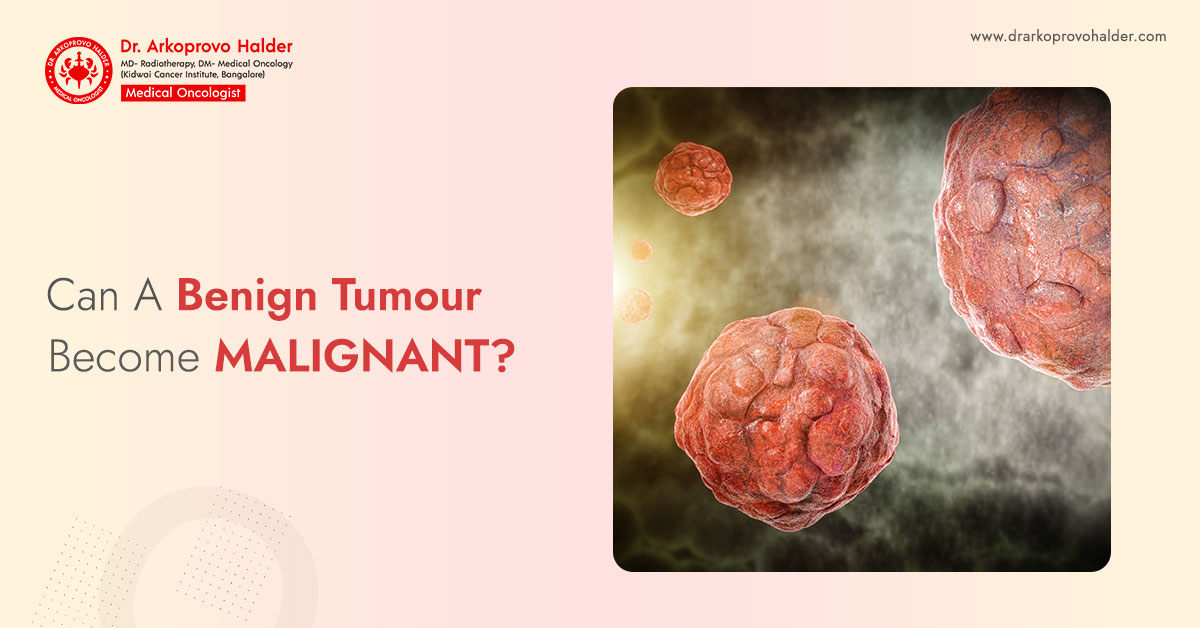A benign tumor means it’s not cancer but concerning. These non-cancerous growths do not invade neighboring tissues or spread to other parts of your body. The group of noncancerous cells can develop anywhere in your body, and grow slowly. This happens when cells develop more than normal and don’t die when they should, forming a mass of cells.
Though caused by unusual growth of cells, many benign tumors don’t require treatment. Avail of optimum tumor treatment in Siliguri city. Close monitoring of a benign tumor under expert supervision is essential. Timely diagnosis is key to keeping track of the condition. Other words for a tumor are polyps, neoplasm, lesion, etc.
Signs and symptoms of benign tumors
Not everyone with benign tumors has the same types of symptoms. Mostly, signs occur when a large tumor presses or disturbs its neighboring tissues, nerves, or organs. Get extensive malignant tumor treatment from a reputed surgical oncologist near you.
Given below are the signs and symptoms of benign tumors:
· Bleeding
· Headaches
· Pain
· Vision issues
· Seizures
· Skin discoloration
· Breathing problems
· Unexplained weight loss
· Unexplained loss of appetite
· Raise skin
· Bumps on skin
Insights into benign tumors
While malignant tumors have uneven/irregular borders, benign tumors have smooth, regular borders. If left untreated, benign tumors can become large in size. Consult the best tumor doctors in Siliguri town.
Usually, noncancerous tumors grow slowly. And, if it’s a malignant tumor, it develops and multiples fast, which may travel up to nearby tissues, lymph nodes, and organs in your body.
There are many forms of benign tumors, such as adenoma, lymphangioma/benign neoplasm, fibroid, myoma, lipoma, chondroma, neuroma, skin tumors, nevi, meningioma, papilomas, osteoma, and hemangioma.
These benign tumors have subtypes, such as sebaceous hyperplasia, neurofibroma, ganglioneuroma, cherry angioma, seborrheic keratoses, and dermatofibromas. Receive advanced facilities for tumor treatment in Siliguri.
Possibility of benign tumors becoming malignant
Benign tumors might turn into a malignant tumor and the chance is low. They rarely transform into cancerous tumors. The type of benign tumor that can develop into a malignant tumor is colon polyp.
Colon cancer and rectal cancer cancer often begin with polyps. According to studies, about 5% of adenomas develop into cancerous tumors.
Researchers don’t know what exactly causes most noncancerous tumors to grow. However, a combination of factors suspected includes stress, diet, frequent infections, family history, exposure to environmental and industrial chemicals, injury, and inflammation.
Your doctor may order diagnostic procedures like blood tests, CT scans, MRI, PET, ultrasounds, monogram/X-ray, and biopsy for tissue sampling in order to examine the nature, location, and size of the benign tumor. Generally, symptoms come into prominence when the tumor size enhances and presses against the nerves, organs, and tissues.





Comments